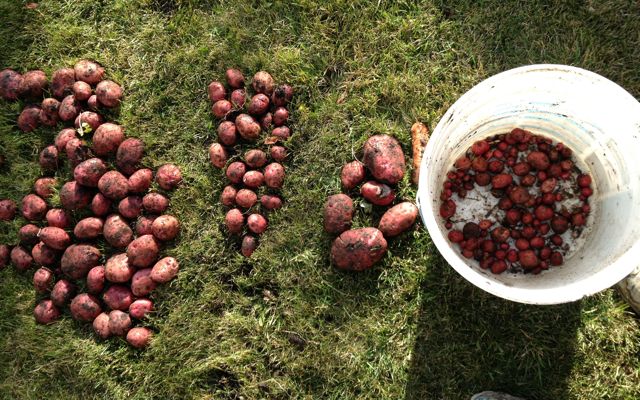 Learning to make homemade soups is one of the best investments in your healthy eating strategy. Soup making is more of an art than a science: there is no one right way to make a good soup. Yet many people are afraid to even try to make it.
Learning to make homemade soups is one of the best investments in your healthy eating strategy. Soup making is more of an art than a science: there is no one right way to make a good soup. Yet many people are afraid to even try to make it.
Soup is comfort food. Chicken noodle soup alone is famous for its ability to soothe the sick.
Soup is filling. In fact, soup can be an effective weight loss tool as long as it’s made with whole real ingredients and not popping out of a can.
Soup starts with broth. Broth should be homemade because of the unnecessary chemicals and lack of real nutrients in packaged or canned broth.
Broth is easy to make. Simply submerge bones (beef, lamb, chicken, turkey, (I’ve even used ham bone)) in water, add sea salt, two TBSP vinegar (to leach the calcium from the bones into the broth) and boil for several hours.
You can add vegetable scraps and water from cooking vegetables. (Caution: Cabbage, broccoli, cauliflower and Brussels sprouts contain sulphur, which can make your broth bitter. But if I’m making cauliflower soup or broccoli soup, I use them). Leftover gravy goes into the broth pot and I usually add a couple bay leaves. I have also tossed in leftover mashed potatoes.
I freeze my broth in two-cup containers so I am always ready to make a soup. Sometimes I boil the bones again, especially a big turkey carcass. The second batch is not as strong but still tasty.
A good friend told me the one ingredient required for good soup is butter. I agree butter is nice but with dairy-free individuals in my family, I’ve had to try other oils. I have found equal success with coconut oil and olive oil.
Now for the recipe: Sautee a small chopped onion, two stalks chopped celery, a chopped carrot and a clove of minced garlic in your oil until the onion is translucent and the celery begins to soften. Add salt and pepper.
Now comes the fun part. With your broth and this soup starter you can make almost any flavour of soup you want.
The other day I had some leftover carrots, turnips and sweet potatoes along with some beef gravy. I began with my soup starter, heated the veggies, then pureed it with my stick blender. Then back into the pot to warm up. Served with popcorn (as crackers), my Root Soup was a hit with my granddaughters.
I love to make squash soup with fresh dill or basil, especially if I have turkey broth, my favourite. Sometimes I throw in green beans for colour, crunch and variety.
In the fall I make borscht by adding beets, cabbage, potatoes and dill to my basic beef broth soup recipe.
I like to make chicken/turkey noodle/vegetable soup, loaded with stuff so it eats like a meal. One day I made oxtail and butternut squash soup. Very yummy.
Mushroom soup is easy to make by adding a couple cups of various chopped mushrooms and sautéing before adding broth. Puree, a few spices and finished with cream: gourmet all the way!
My favourite soup is one I make by first taking a trip through the garden with my bowl. Baby carrots, fresh zucchini, green beans or summer peas lightly steeped in my soup starter make a lovely summer supper.
I make seafood chowder by adding bacon, potatoes, clams, shrimp, and other fish to the pot. Top it off with some red peppers, frozen peas, and cream (or coconut milk) moments before serving and we’ve got a hearty meal.
I pour hot leftover soup into jars and refrigerate. They keep for a long time (if they are sealed hot) and make lovely quick lunches and gifts to the sick and shut-in, all without BPA, table salt, and other harmful chemicals. To keep longer, freeze soup. It’s best if used within three months.
Warning: once you begin making your own soups you will never again be able to eat soup from a can or eat it in a restaurant. You will be able to smell the chemicals; it will taste too salty yet seem tasteless.
Making your own soup means you are in charge of the ingredients. You control the salt and sugar. (Sugar in soup? The canned stuff has it!) You control the kind and amount of fat. You control how long the vegetables cook. (Ideally they are not overcooked).
Most importantly, homemade soups have nutrients that canned and packaged soups simply don’t have. We eat to provide our bodies with nourishment so why would we eat soup from a can?
If you’re on a budget (and who isn’t?) homemade soup can be a very economical way to feed yourself and your family.
I hope you’ll try to make some soup. If you do, be sure to tell me about it.
As always I urge you to eat The Food. The Whole Food. And Nothing but the Food.
